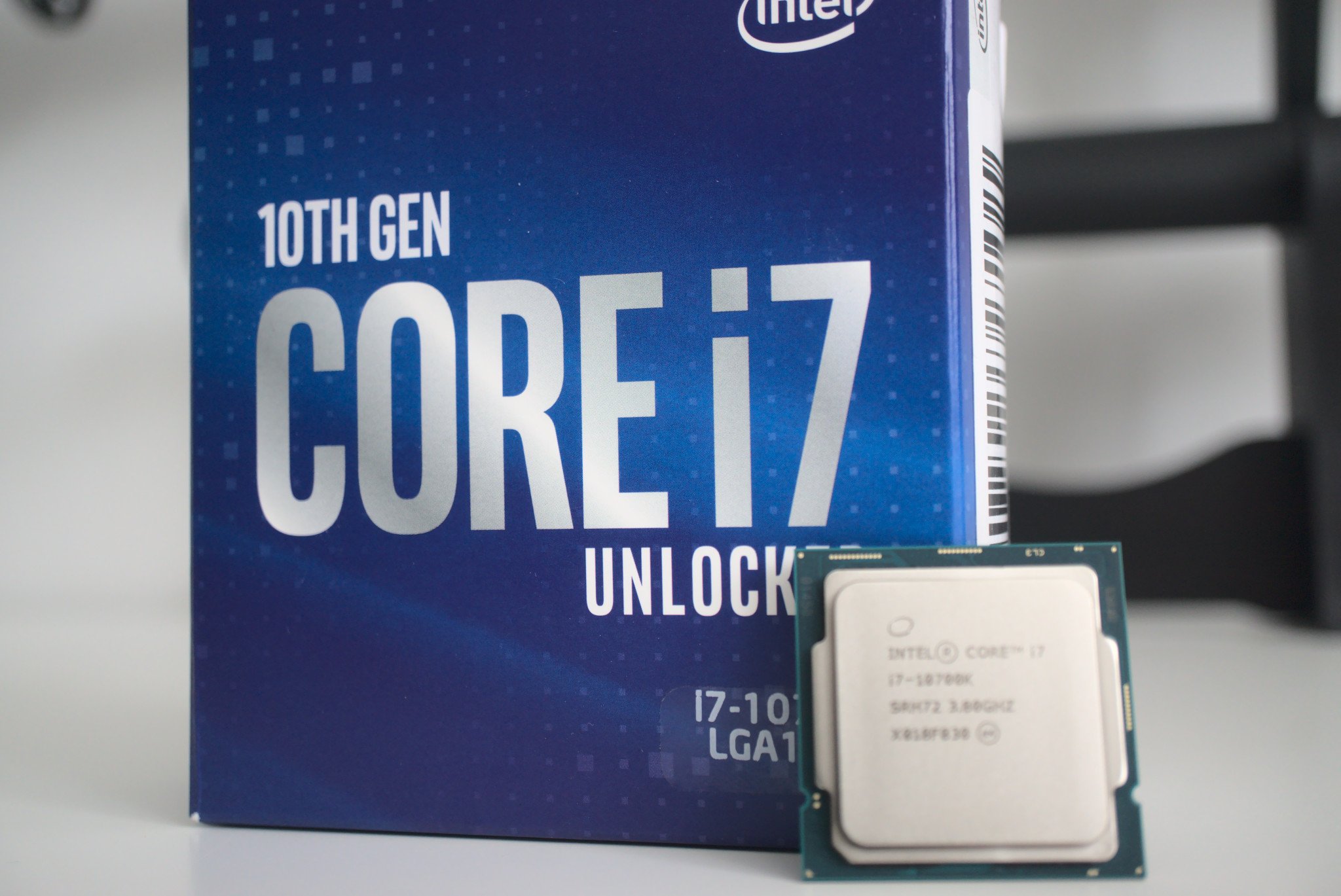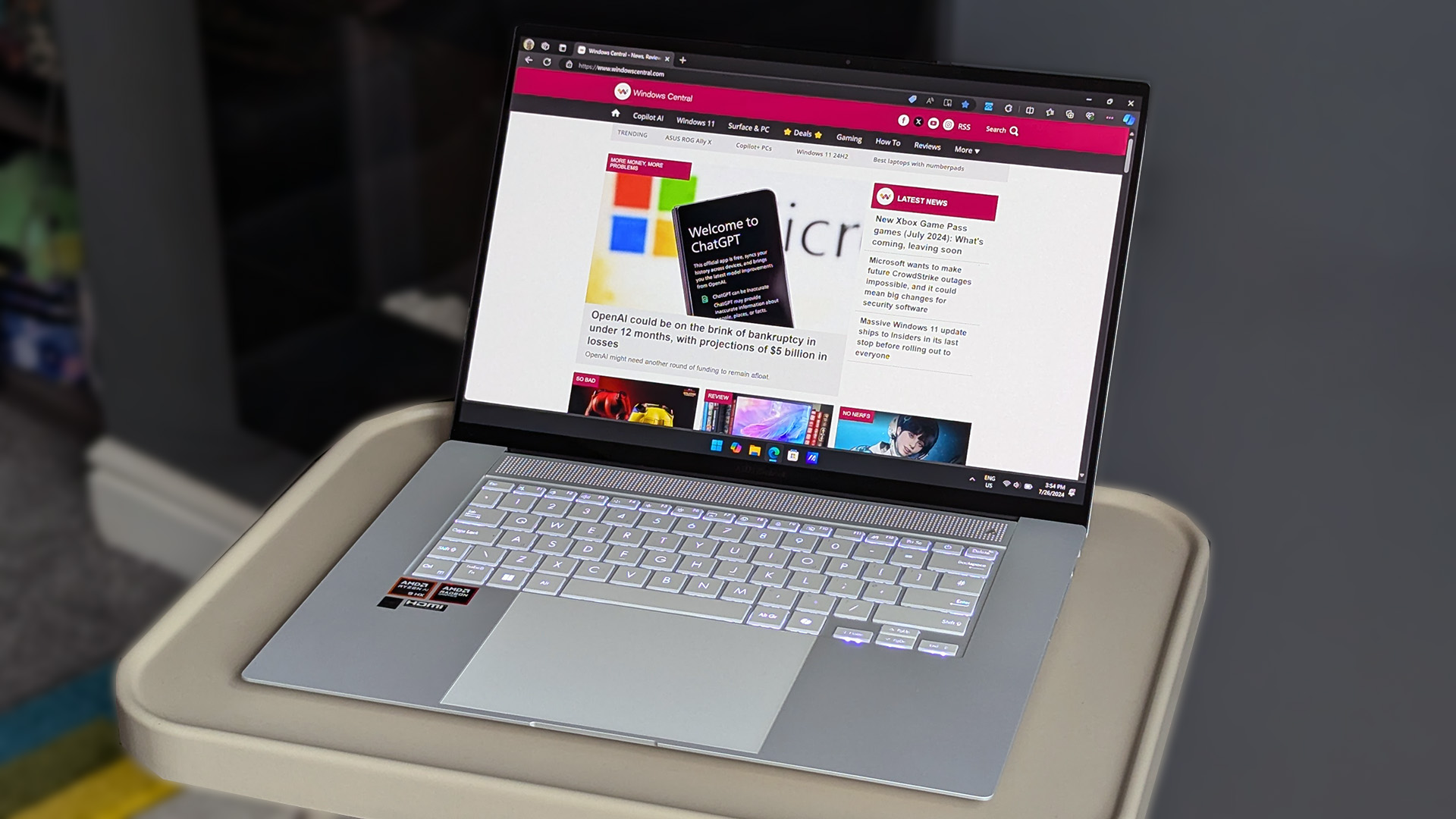The Intel Comet Lake microarchitecture launched in 2019 with low-power designs in the Comet Lake-U series for laptops and smaller computers, but now we've got our hands on the desktop-class counterparts that are positioned to take on AMD. The new mid-range performance king in Intel's 10th Gen line-up is the Core i7-10700K, an 8-core CPU with 16 threads in total.
It's similar to the excellent Core i9-10900K, but comes at a lower price point and has two fewer cores. What's interesting, however, is how close these two Intel processors are in performance for gaming. The Core i9-10900K is touted as "the best gaming CPU" from Intel, but is it really that much better than the Core i7-10700K?
Also, with AMD well in the 7nm territory — Intel is stuck with 14nm with the 10th Gen series — for the manufacturing process and enthusiasts backing team red, is it better value to go with the Core i7-10700K or Ryzen 7 3800X from AMD?
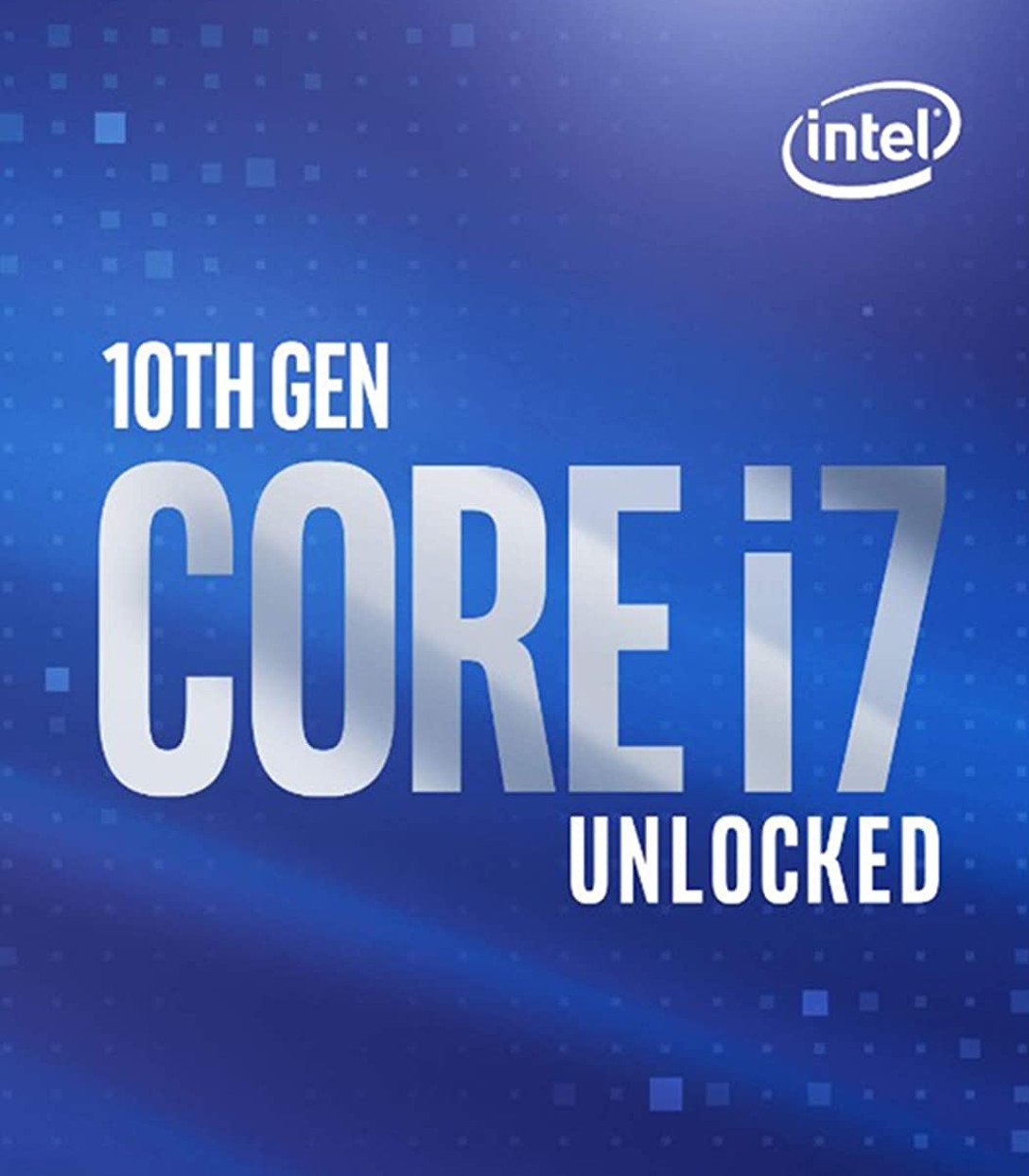
Bottom line: Intel has some seriously fast Core i9 processors, but if you're after something a little more affordable without sacrificing too much on performance, the Core i7-10700K is ready to handle most demanding tasks and gaming. It's fast, reliable, and efficient, but falls a little short compared to AMD's offerings.
Pros
- Eight cores and 16 threads
- Unlocked multiplier
- Amazing gaming performance
- Great at both single- and multi-core workloads
- High clock and boost frequencies
Cons
- Incompatible with older motherboards
- No PCIe 4.0
- High power consumption
- No cooler bundled in the box
- No Thermal Velocity Boost
Intel Core i7-10700K Specs
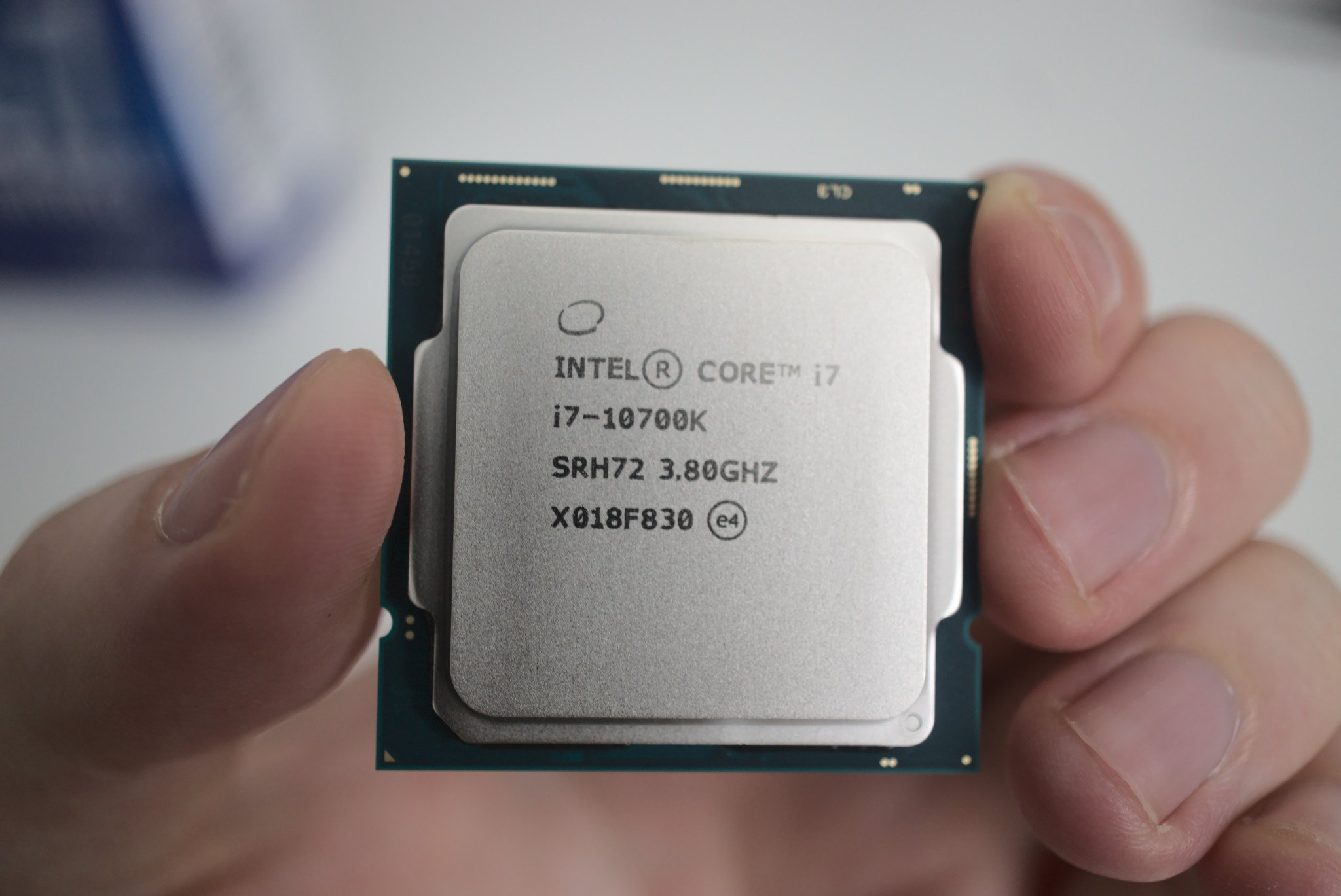
Intel's Core i7-10700K is a powerful mid-tier desktop processor, rocking eight cores and 16 threads. Accompanying these figures is a base frequency of 3.8GHz with the potential to boost up to 5GHz on all cores thanks to Turbo Boost 2.0. Intel is also using Turbo Boost Max 3.0 to allow the processor to run two cores at 5.1GHz, which is pretty impressive.
Unfortunately, there's no Thermal Velocity Boost (TVB), which is a fancy name for the algorithm that can push the CPU even further by running all cores at beyond Turbo Boost speeds in short bursts. This is what can provide Intel's platform with an edge over AMD, especially once you factor in overclocking, so it's a shame it's missing from the Core i7 range.
| Category | Intel Core i7-10700K |
|---|---|
| Cores/Threads | 8/16 |
| Base Frequency | 3.80 GHz |
| Turbo Boost 2.0 | 5.00 GHz (all cores) |
| Turbo Boost Max 3.0 | 5.10 GHz (two cores) |
| Thermal Velocity Boost | - |
| Integrated Graphics | Intel UHD Graphics 630 |
| Memory | DDR4-2933 |
| TDP | 125 W |
| L3 Cache | 16 MB |
| Manufacturing Node | 14nm |
| Socket | LGA1200 |
Intel Core i7-10700K Comet Lake-S
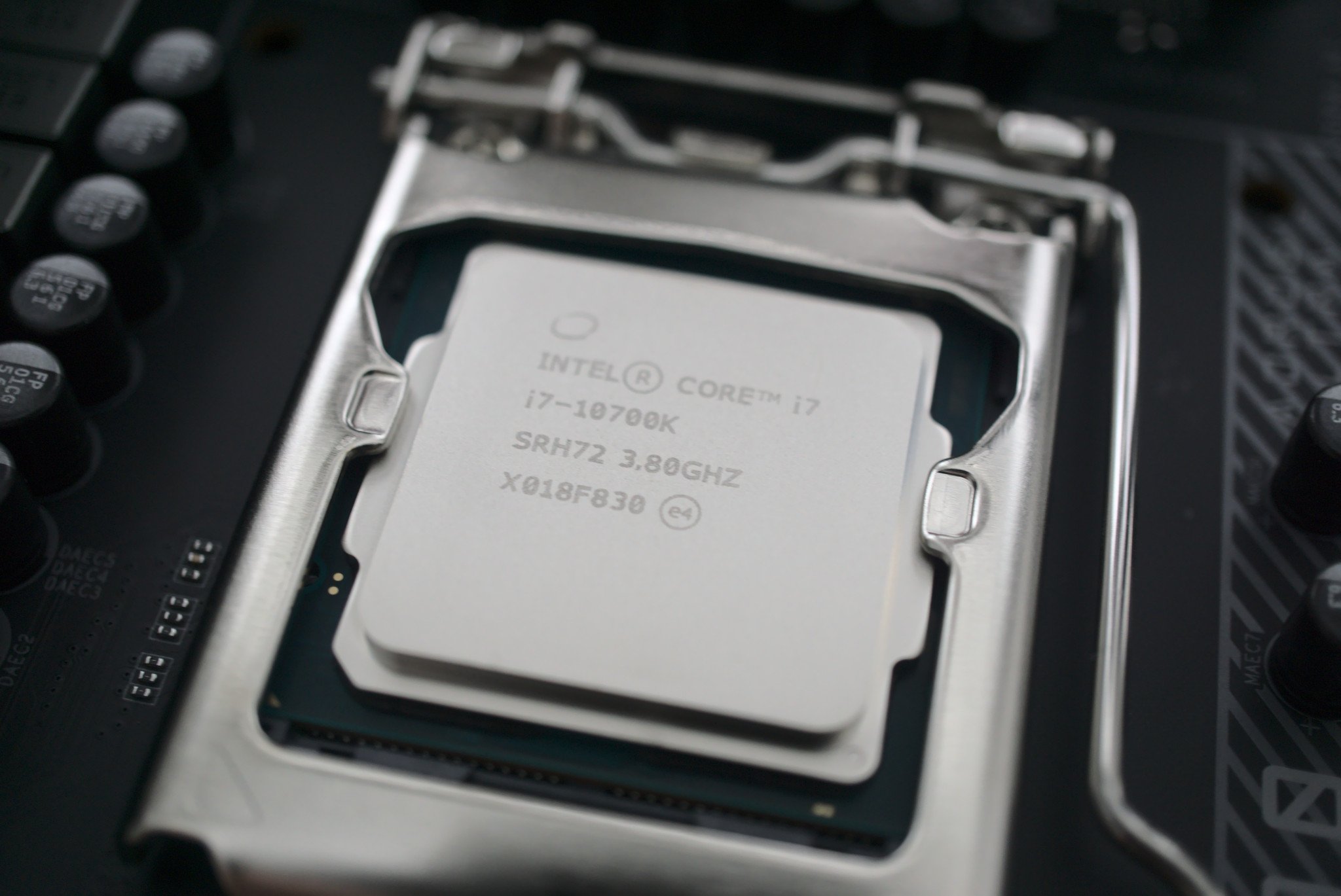
Intel has a plethora of SKUs available in the Comet Lake-S family of processors, better known as 10th Gen. These SKUs target different customers with Pentium and Celeron being among the lowest priced and performing CPUs, while Core i7 and Core i9 take crowns as among the best in the industry.
Here's what the different suffixes represent when looking at an Intel CPU to purchase:
All the latest news, reviews, and guides for Windows and Xbox diehards.
- K: Unlocked design with integrated graphics.
- KF: Unlocked design without integrated graphics.
- No suffix: Regular model with integrated graphics — no overclocking here.
- F: Regular model without integrated graphics.
- T: Low-power option.
Going by this list with the Intel Core i7-10700K, we can see that it's an unlocked processor with integrated graphics. What makes Comet Lake-S so interesting is Intel has found itself in the same position AMD was in years back with its bulldozer series of processors. The only way forward is by adding more cores and threads.
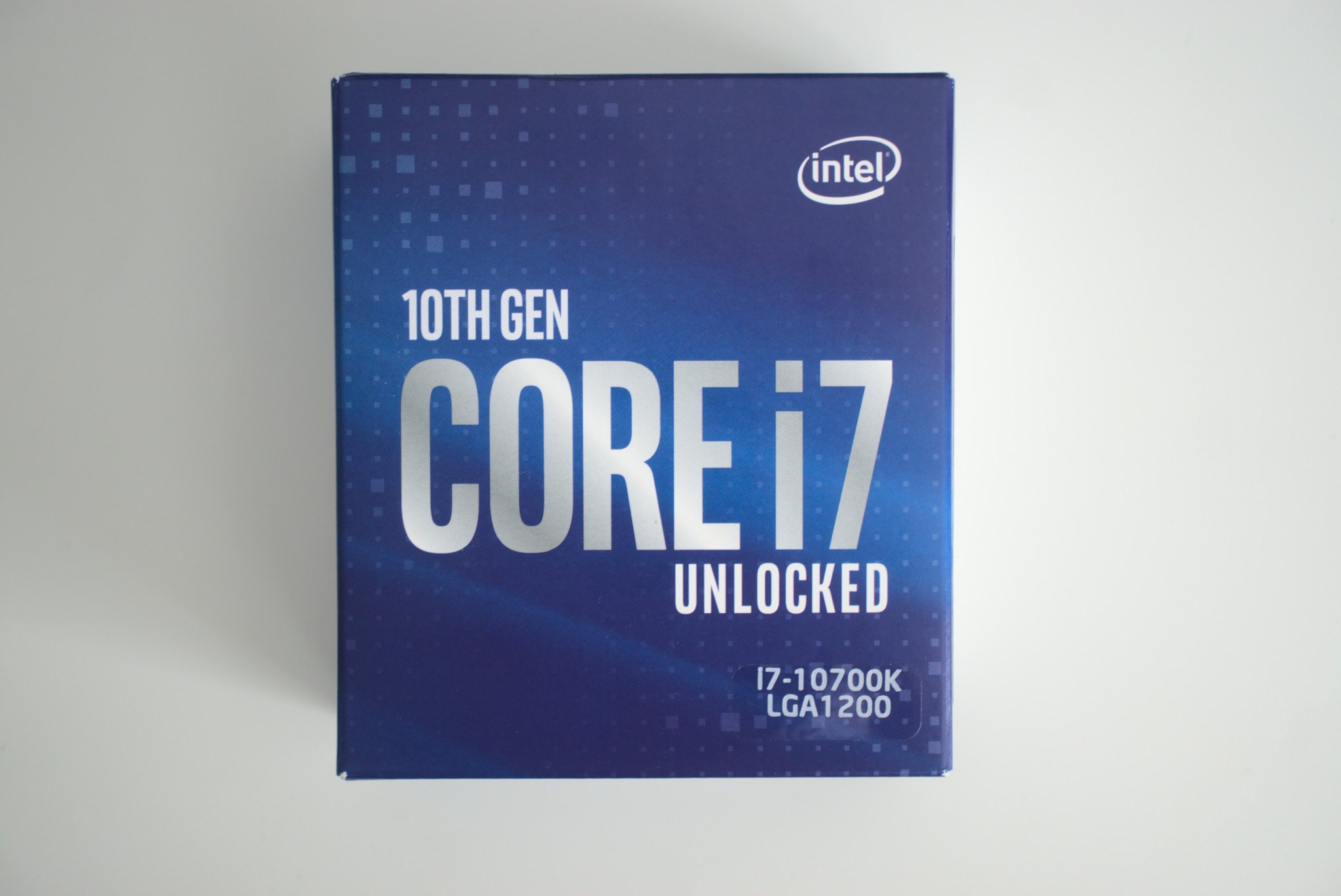
AMD's recent innovations with Ryzen has forced Intel to lower pricing, throw in Hyperthreading throughout the Comet Lake-S series, and increase the overall value offered to customers. The current generation of Comet Lake-S processors are based on the 14nm++ Skylake architecture, while AMD enjoys TMSC's 7nm platform.
Intel falls further behind AMD in the race to create more efficient processors.
The 14nm process has already shown its age, and Intel is simply applying tape to the holes in an attempt to hold back the waters and prevent the dam from bursting. There's not really an increase in terms of instructions per clock (IPC), but Intel has managed to work in higher clock speeds and more threads for better performance.
Because of this increase in power, Intel had to ditch the LGA1151 socket and introduce the LGA1200 socket, requiring those with 9th Gen supporting motherboards to purchase a replacement board with the newest chipset to use a Comet Lake-S processor. There is an upside, however. You will be able to use older coolers with the Core i7-10700K.
Intel Core i7-10700K Performance
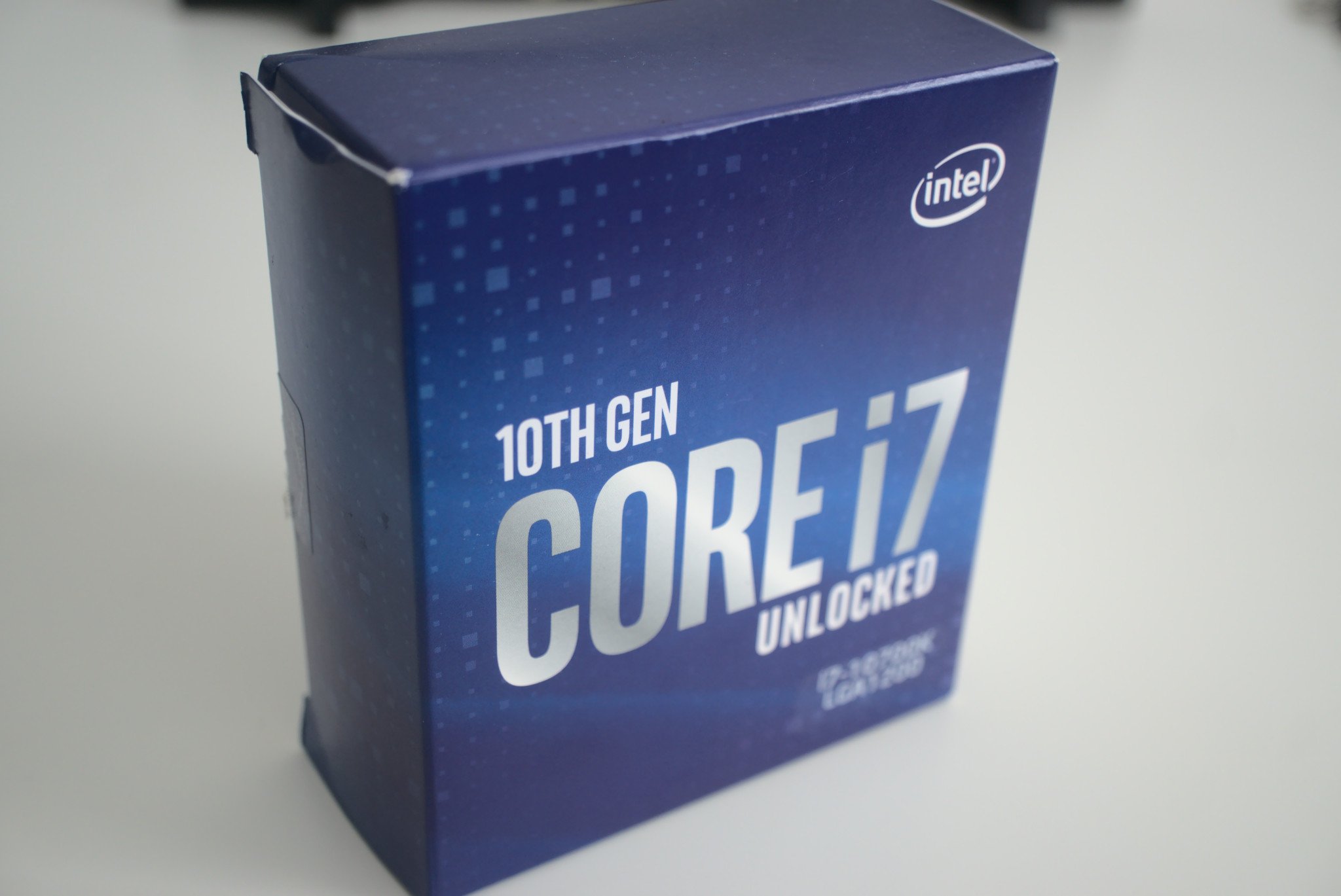
Intel has placed the Core i7-10700K right behind the Core i9-10900K, which means this processor should be able to hold its own against its sibling, as well as AMD's Ryzen 7 3800X and Ryzen 9 3900X. AMD rocked the boat with high-end Ryzen and Threadripper processors, so Intel hopes the Core i7-10700K can tempt customers with solid mid-tier performance.
| Category | Test Bench |
|---|---|
| Chipset | Intel Core i7-10700K |
| Motherboard | Gigabyte Z490 Aorus Ultra |
| Cooling | be quiet! Pure Rock 2 |
| Memory | 2x 8GB Corsair Vengeance DDR4 3000 |
| Storage | 1TB Kingston KC2500 M.2 SSD |
| Graphics | ZOTAC RTX 2060 SUPER MINI |
| PSU | NZXT C650 |
We tested the Core i7-10700K on the Gigabyte Z490 AORUS ULTRA motherboard with the be quiet! Pure Rock 2 CPU cooler attached to both the motherboard and processor. RAM clocked in at 16GB of fast Corsair Vengeance DDR 4 3000, and a ZOTAC RTX 2060 SUPER MINI rounded everything out to create quite the capable test rig.
The Core i7-10700K draws significantly less power than the Core i9-10900K but is overshadowed by just how efficient AMD's Ryzen 9 3900X is. It's also no match for the Ryzen 7 3800X, which is miles ahead in terms of power efficiency. Still, considering Intel is stuck on 14nm, the results are pretty good when compared against older generation Intel processors.
The Intel Core i7-10700K offers impressive performance on an aging 14nm platform.
Upgrading from an Intel Core i7-9700K or i9-9900K, you'll notice a difference in power draw without sacrificing much in terms of performance. The i7-9700K lags behind the newer i7-10700K. Intel managed to match AMD by sticking eight cores onto the i7-10700K with Hyperthreading, allowing it to go up against the Ryzen 7 3800X on an equal footing.
Synthetic testing revealed a substantial difference between the Core i7-10700K and Ryzen 9 3900X in multi-core applications, as expected. What is interesting is how close you can get the 10700K to the Core i9-10900K for gaming and single-core tests, which costs considerably more.
Regardless of what resolution you enjoy PC games at, the Core i7-10700K will easily handle what your GPU can pump out to connected monitors. It can even best the Ryzen 9 3900X in many games. Still, for most gamers, they won't see much of a difference so long as they use the best graphics cards they can afford.
It's a shame that Intel is so far behind AMD for performance-per-watt. The Core i7-10700K draws more from the PSU than a 12-core AMD Ryzen 9 3900X. That's crazy, but shows just how important it is for Intel to continue shrinking its manufacturing process. The only improvements Intel could make this generation is a boost to frequencies, which increases power draw.
Both the Core i7-10700K and Core i9-10900K are among the best Intel CPUs you can buy today.
Intel Core i7-10700K Competition
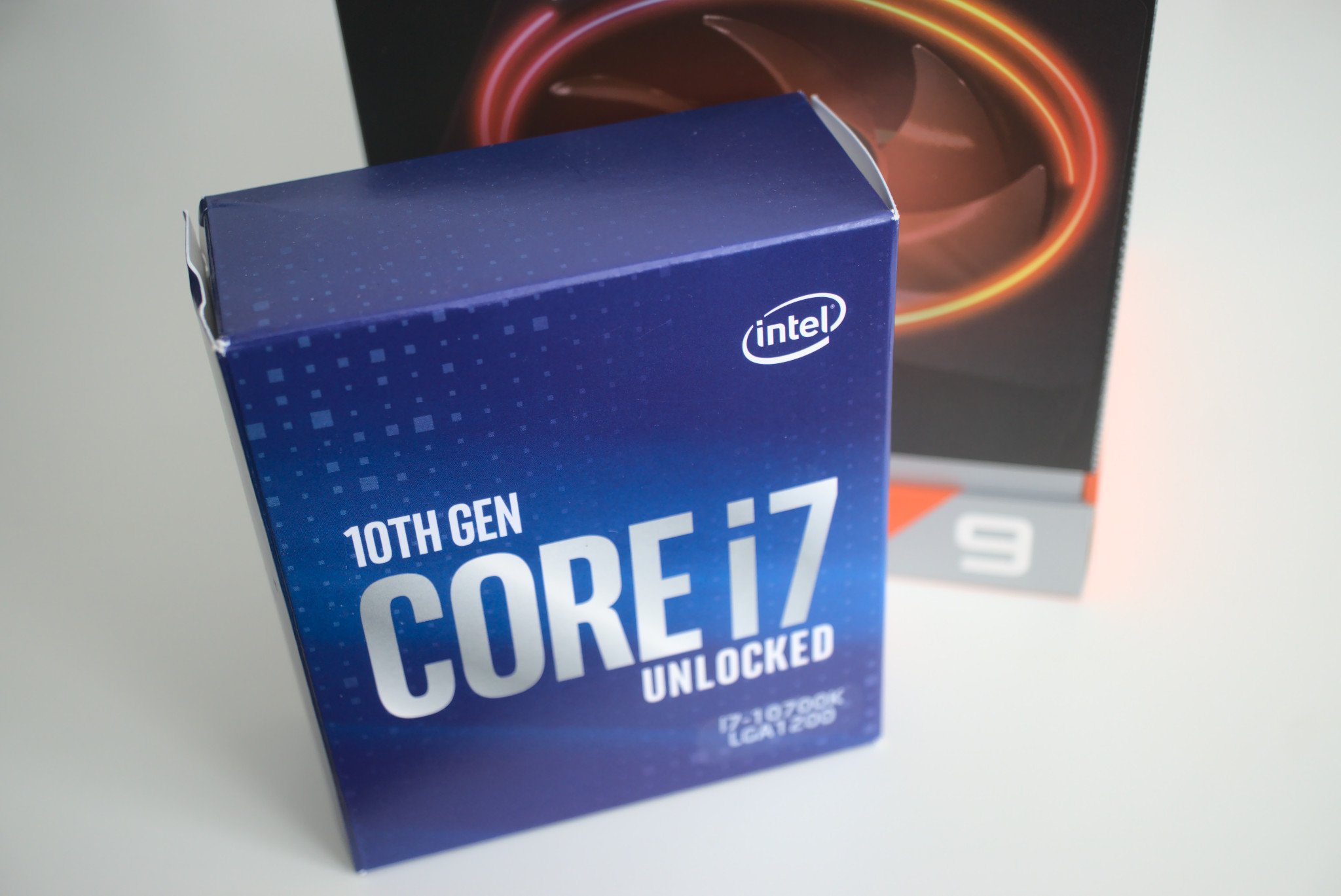
It's clear Intel positions the Core i7-10700K as the younger sibling to the Core i9-10900K since it's easy to overclock the former and hit higher performance figures. For competition from team red, AMD has the $330 Ryzen 7 3800X, which not only costs less than the Core i7-10700K but also draws far less power.
Without banging the same drum too much, the largest drawback to the Core i7-10700K is the architecture. Intel's 14nm process is old and is lagging far behind the competition. What Intel has managed with the Core i7-10700K is remarkable, but it's short of what the company needs to really hit back at AMD's surge in market share with Ryzen.
Both the Ryzen 7 3800X and Core i7-10700K have the same number of cores and threads, so it comes down to performance per core. Intel wins outright, especially in games and single-core processes, but AMD comes out ahead for efficiency and value. It all comes down to what you value (pun intended) more.
Intel Core i7-10700K Should you buy?
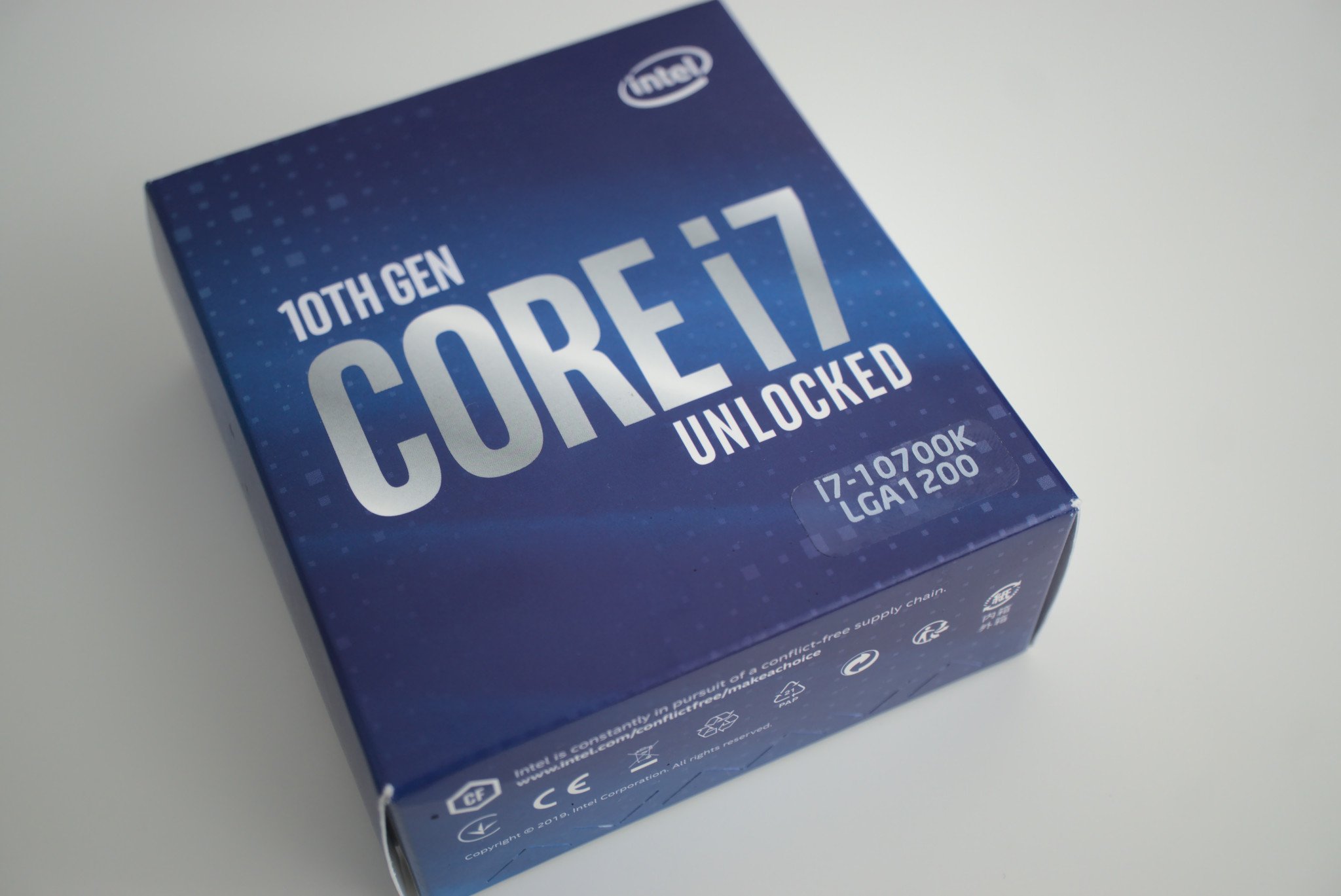
Who it's for
- If you need the best CPU around for gaming
- If you're looking for excellent single and multi-core performance
- If you want an unlocked part that's easy to overclock
Who it isn't for
- If you want to slot a new CPU into your existing build
- If you're looking for a chipset with modest power consumption
- If you need PCIe 4.0
It's far from perfect, but the Core i7-10700K has me excited for future Intel CPUs.
The Intel Core i7-10700K, like most modern processors, is extremely good. Gone are the days where you'd need to go with the highest-grade CPU to get the most out of your PC. Even a Core i3 or Core i5 will allow you to get plenty done. The Core i7-10700K is a serious processor for serious workloads.
It's a shame Intel was stuck with 14nm since we'd love to see what the company can do with a shrunk process comparable to AMD. Even though Intel has lagged behind AMD, the company isn't quite out, and the Core i7-10700K is impressive, especially given it's handicapped by the 14nm architecture.
The boost in frequencies allows the Intel Core i7-10700K to outperform the Ryzen 7 3800X and even keep up with the Core i9-10900K for gaming and single-core workloads. While this isn't the most affordable processor, nor is it the most efficient or best in terms of performance-per-watt, it's a solid choice for those seeking an excellent desktop CPU.

Rich Edmonds was formerly a Senior Editor of PC hardware at Windows Central, covering everything related to PC components and NAS. He's been involved in technology for more than a decade and knows a thing or two about the magic inside a PC chassis. You can follow him on Twitter at @RichEdmonds.
